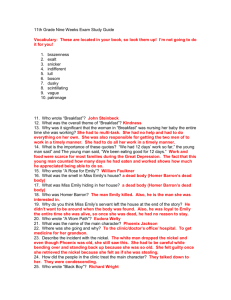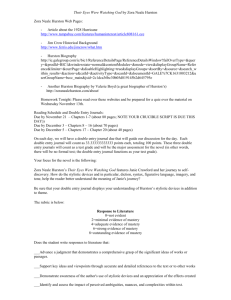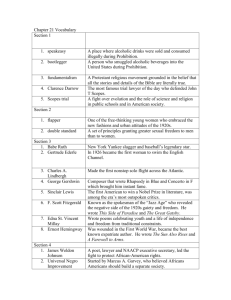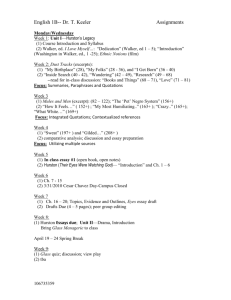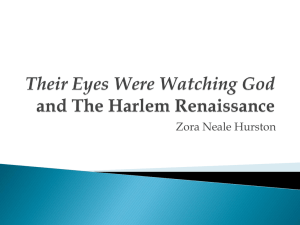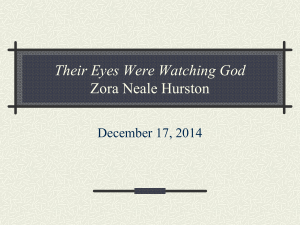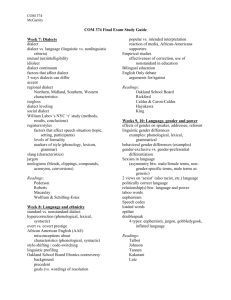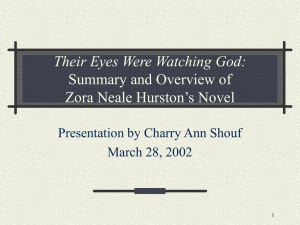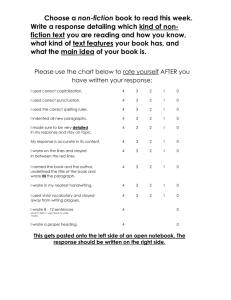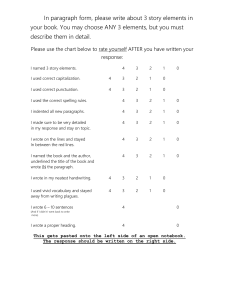their eyes - Zora Neale Hurston.doc
advertisement
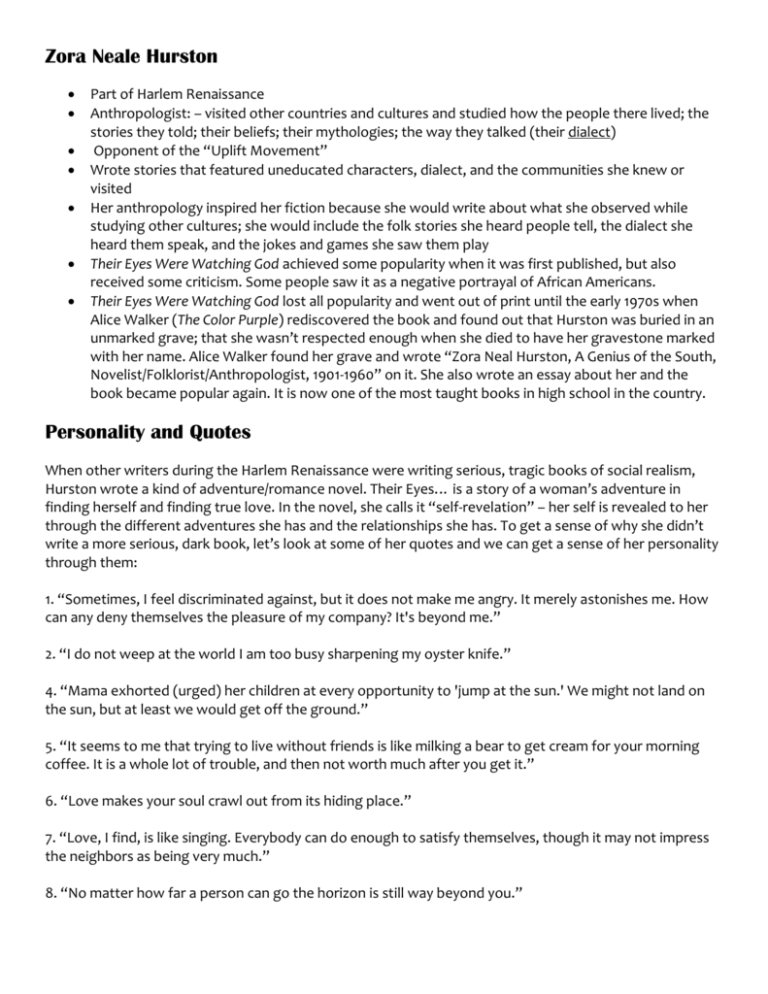
Zora Neale Hurston Part of Harlem Renaissance Anthropologist: – visited other countries and cultures and studied how the people there lived; the stories they told; their beliefs; their mythologies; the way they talked (their dialect) Opponent of the “Uplift Movement” Wrote stories that featured uneducated characters, dialect, and the communities she knew or visited Her anthropology inspired her fiction because she would write about what she observed while studying other cultures; she would include the folk stories she heard people tell, the dialect she heard them speak, and the jokes and games she saw them play Their Eyes Were Watching God achieved some popularity when it was first published, but also received some criticism. Some people saw it as a negative portrayal of African Americans. Their Eyes Were Watching God lost all popularity and went out of print until the early 1970s when Alice Walker (The Color Purple) rediscovered the book and found out that Hurston was buried in an unmarked grave; that she wasn’t respected enough when she died to have her gravestone marked with her name. Alice Walker found her grave and wrote “Zora Neal Hurston, A Genius of the South, Novelist/Folklorist/Anthropologist, 1901-1960” on it. She also wrote an essay about her and the book became popular again. It is now one of the most taught books in high school in the country. Personality and Quotes When other writers during the Harlem Renaissance were writing serious, tragic books of social realism, Hurston wrote a kind of adventure/romance novel. Their Eyes… is a story of a woman’s adventure in finding herself and finding true love. In the novel, she calls it “self-revelation” – her self is revealed to her through the different adventures she has and the relationships she has. To get a sense of why she didn’t write a more serious, dark book, let’s look at some of her quotes and we can get a sense of her personality through them: 1. “Sometimes, I feel discriminated against, but it does not make me angry. It merely astonishes me. How can any deny themselves the pleasure of my company? It's beyond me.” 2. “I do not weep at the world I am too busy sharpening my oyster knife.” 4. “Mama exhorted (urged) her children at every opportunity to 'jump at the sun.' We might not land on the sun, but at least we would get off the ground.” 5. “It seems to me that trying to live without friends is like milking a bear to get cream for your morning coffee. It is a whole lot of trouble, and then not worth much after you get it.” 6. “Love makes your soul crawl out from its hiding place.” 7. “Love, I find, is like singing. Everybody can do enough to satisfy themselves, though it may not impress the neighbors as being very much.” 8. “No matter how far a person can go the horizon is still way beyond you.” Instead of writing books that featured African Americans as model citizens complaining about being discriminated against, she wrote books that celebrated African-American and African culture: its stories, its way of talking (its dialect), and its personalities. She promoted people finding freedom and happiness on their own instead of demanding it from society. Part of the reason she was an anthropologist was that she was seeking to discover all the greatness of African-American roots and show everyone how rich their cultural inheritance was. So this book features a lot of dialect. When a character speaks, she spells the words how they would sound coming from that character. "Love ain'tsomethin' lak uh grindstone dat's de same thing everywhere and do de same thing tuh everything it touch. Love is lak de sea. It's uh movin' thing, but still and all, it takes its shape from de shore it meets, and it's different with every shore" (20.7).
